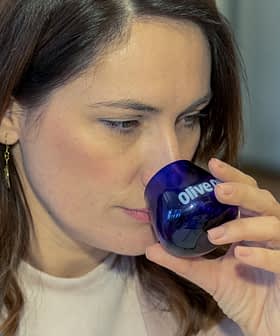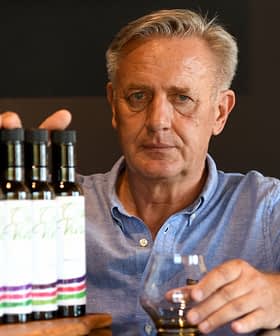Part of our continuing special coverage of the 2022 NYIOOC World Olive Oil Competition.
Tuscan producers earned a record number of awards at the tenth NYIOOC World Olive Oil Competition, once again confirming the central Italian region on the world stage.
This success comes at the end of a season described by some as one of the most challenging in recent times. Several groves were affected by extreme weather, especially during the summer, which posed a severe threat to both yields and quality.
However, painstaking work in the field, where nothing was left to chance, coupled with greater investment and a certain amount of stubbornness – a talent that all the farmers should be equipped with, in any case – made it possible for Tuscan producers to reach outstanding levels of quality.
See Also:The Best Olive Oils From ItalyAll this effort translates into elegant, mouth-filling blends rich in scents like artichoke, wild greens, almonds, aromatic herbs and spices that come together, generating striking sensorial emotions.
Nestled on the gravelly, tuffaceous hills of Cetona, in the province of Siena, Podere Ricavo earned a Gold Award for its DOP Terre di Siena Biologico brand, an organic medium blend.
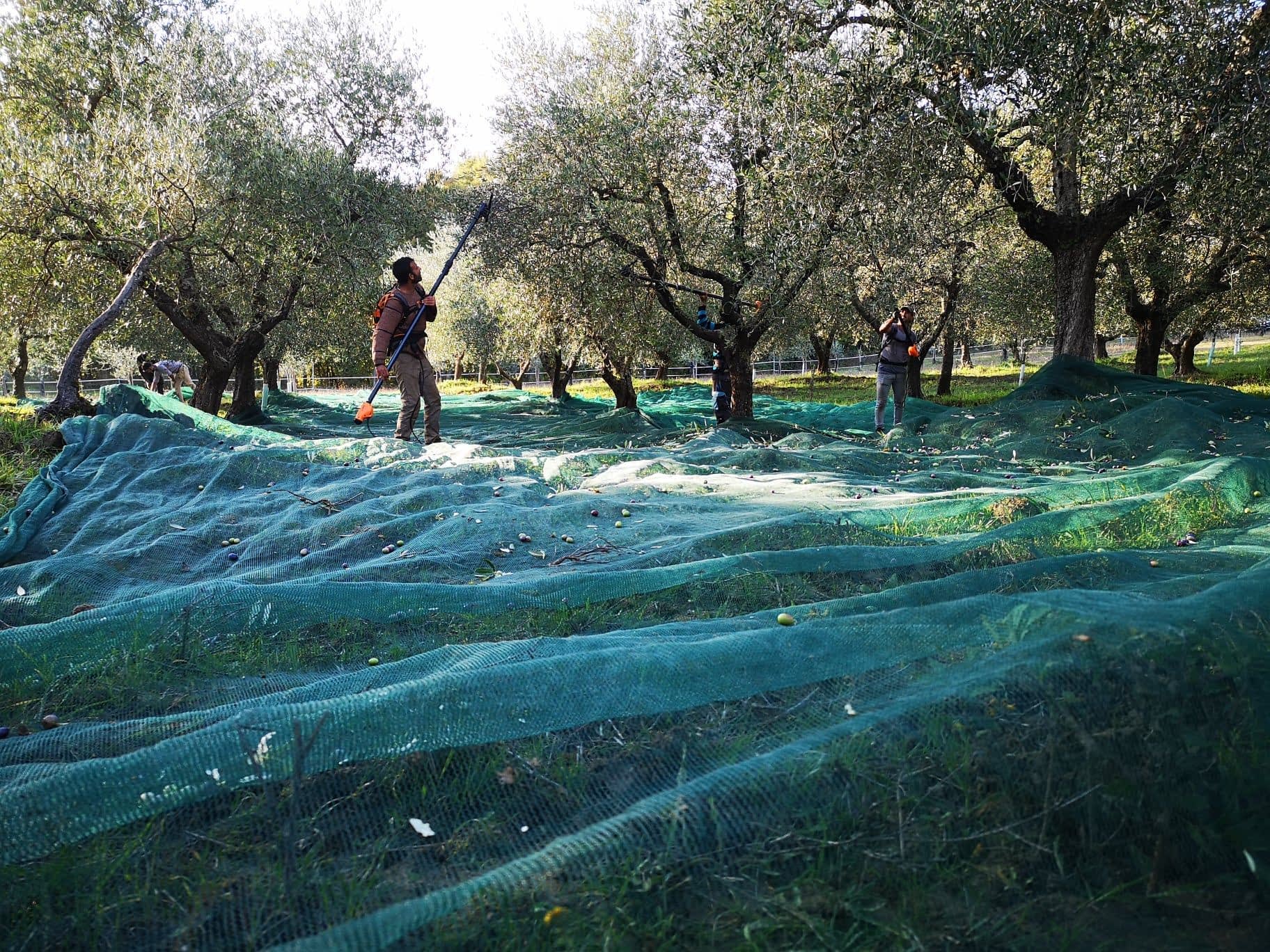
Olive harvest at Podere Ricavo
“For us, this award is worth double,” Federico Massoli told Olive Oil Times. “First, the NYIOOC is a prestigious competition and obtaining recognition from it means a lot to us. Also, since we have many customers in the United States, this is a way to show them the relevance of our product.”
“Last year was complex,” he added. “A late frost compromised the flowering and halved the production, yet this did not prevent us from obtaining the high quality we always aspire to.”
His 3,000 olive trees are spread over a 10-hectare estate that, being on the regional border, encroaches on the neighboring Città della Pieve in Umbria.
“Our blend consists of 40 percent Moraiolo, a little less than 20 percent Leccino, with the remaining percentage shared between Frantoio and Correggiolo,” Massoli said.
Besides these, his groves include several Minuta di Chiusa trees, which were recently rediscovered.
“We produce a monovarietal and call it the olive oil of Etruscans,” he said. “Indeed, centuries-old Minuta trees can be found only in our local area around Chiusi, which was once the capital of this population.”
“The protection of biodiversity, closely linked to sustainable farm management, is part of our life philosophy that urges us to live in a clean and healthy environment,” Massoli added.
In Vitiano, a hamlet of Arezzo, Giancarlo Giannini masterfully combined the fruits of Frantoio, Leccino and Moraiolo trees. The result is Vipiano, whose harmonic complexity impressed the NYIOOC judges and earned him a Gold Award – the latest in a long series of accolades.
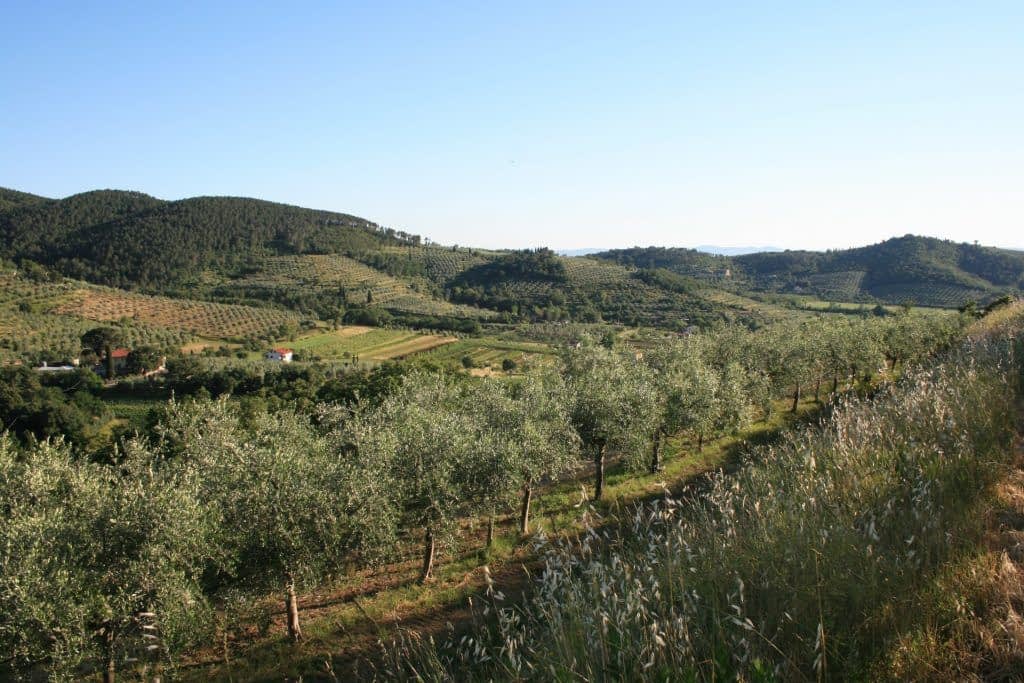
Vipiano’s olive groves
“I am pleased, especially since receiving several awards in a row allowed us to communicate to our customers our constant dedication to quality over the years,” he told Olive Oil Times.
“My groves still maintain a traditional planting layout,” Giannini added. “They are mostly composed of very old olive trees, while the newest part was planted after 1985.”
He said that since the big chill of that year, the last harvest was probably the most difficult in the recent decades.
“A late frost in the first week of April destroyed the first buds and delayed flowering,” Giannini said. “Then we had a good fruit set, but a heat wave burned the small fruits.”
“Only in the newly irrigated area were we able to save part of the harvest,” he added. “This meant increased work and expenses, but the final quality we reached paid us back for all the effort.”
This year, a very good flowering bodes well for the next harvest. “We have to see what happens in the next few weeks,” said Giannini, who is also the producer behind Bramasole, the brand created by Frances Mayes, author of the New York Times bestseller Under the Tuscan Sun.
The fruits of her plants, located between Vitiano and Cortona, are crushed at Giannini’s mill.
“I believe the machinery is important, but the operator makes the difference,” he said. “The oil mill is like a race car: victory depends on the driver.”
Meanwhile, the rolling hills around Florence are where Frescobaldi produces Gold Award-winning Laudemio, a blend where Frantoio is predominant.
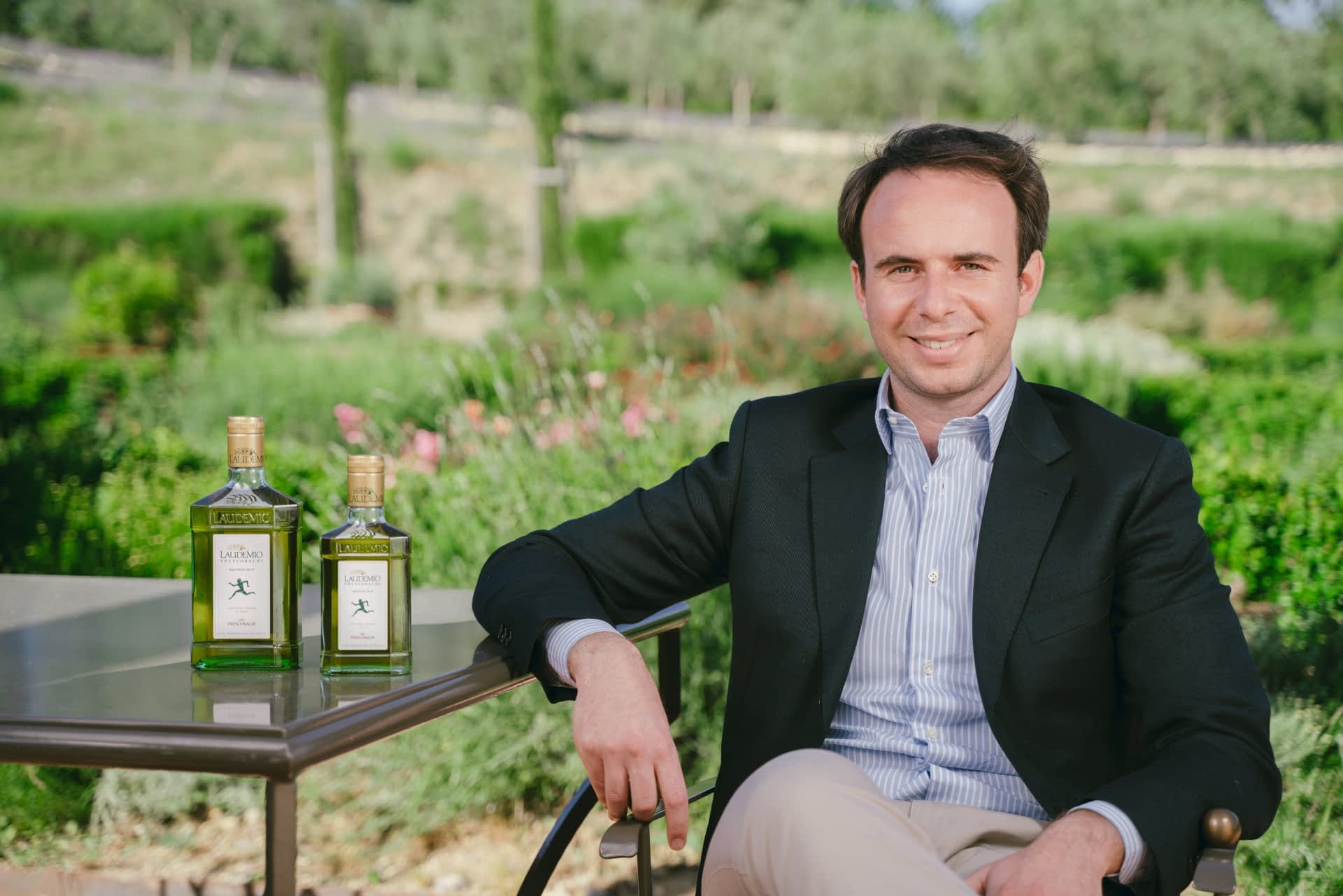
Matteo Frescobaldi
“Receiving this recognition gratifies and rewards our work in the field and at the mill,” Matteo Frescobaldi told Olive Oil Times. “It is a great satisfaction every year, but this prize acquires even more value after a challenging harvest like the last one.”
“Let’s say right away that the result in terms of quality was extraordinary,” he added. “And still, this came after a season characterized by a series of weather events that have put us to the test.”
Their 300-hectare olive grove is located between 200 to 500 meters of elevation. The buds of the lowest plants had already begun to develop when the early April frost hit them. Then, the high temperatures of June made the fruit set very difficult.
“The activity in the groves has been more intense than usual,” Frescobaldi said. “All the practices normally carried out, such as green manure and pruning, last year turned out to be even more relevant, and not a single detail has been overlooked.”
“Even the harvest, which started in mid-October, required special care to collect the low amount of fruits on each plant,” he added. “However, I have to say that it was great training for each of us.”
Now, the first small olives peep out after full bloom, and the expectations are high. “The next weeks are crucial,” Frescobaldi said. “In any case, we are prepared to work hard to achieve the highest quality.”
Antico Poggiolo is an organic olive grove of 2,000 trees that sits on a hilltop overlooking Pistoia, boasting beautiful views that extend toward Florence.
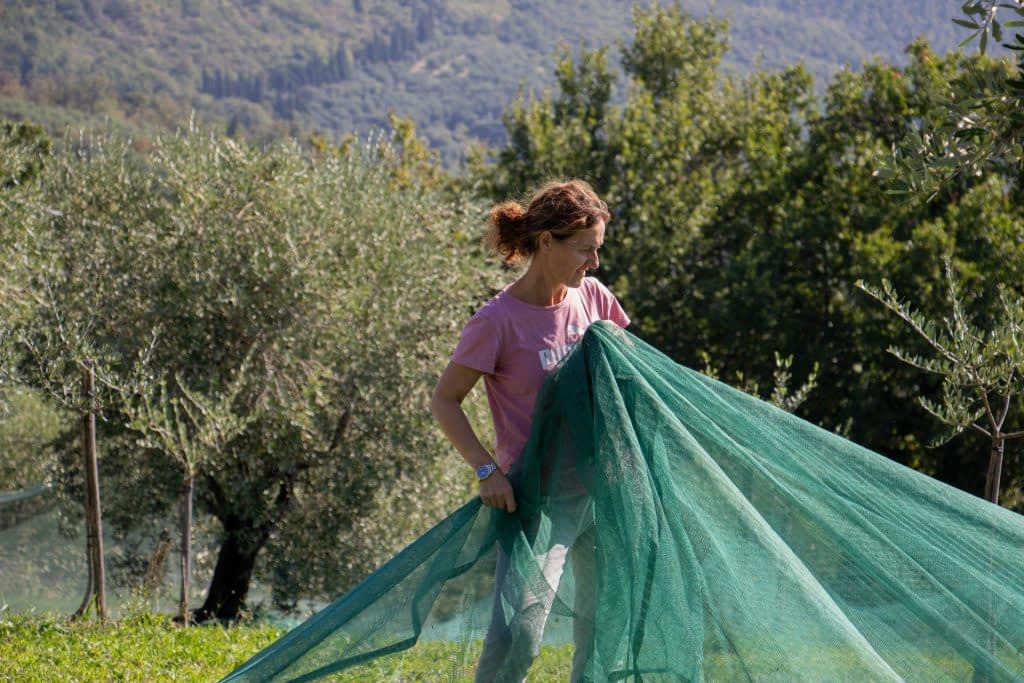
Silvia Gori
“We participated for the first time, and we obtained such an important recognition,” Silvia Gori said, commenting on the Gold Award earned for her blend of Frantoio, Moraiolo and Leccino. “I think this competition is a great showcase for our extra virgin olive oil.”
Following the tradition of her family, which has been producing olive oil for generations, in 2016, she created the Antico Poggiolo with the aim of making a high-quality extra virgin olive oil.
“This area has ideal pedoclimatic characteristics,” Gori said. “I think this helped us obtain an excellent product last year despite the sharp decline in production.”
“Indeed, compared to the previous harvest, it was more than halved,” she added. “In particular, the Leccino variety suffered the extreme weather events that occurred in the warmer months. On the other hand, the high temperatures prevented the onset of the olive fruit fly.”
The farmhouse of Antico Poggiolo is about to open, and there is a plan to build a state-of-the-art mill.
“We are waiting for all the necessary permits to establish our facility,” Gori said. “Our structure is harmoniously placed in the context. As we pay particular attention to the care of the landscape, we kept the original planting pattern of the groves.”
Their project is to expand production by adding more olive trees on some vacant plots.
“Wild animals are widespread in the area,” Gori said. “We protect them and their environment using sustainable farming methods. We just need to create an enclosure to prevent them from nibbling the branch of the young plants. We will plant the new olive trees as soon as the work is done.”




